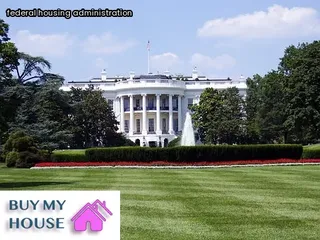An FHA appraisal is a comprehensive evaluation of a property that is used to determine its value and condition for the purpose of obtaining an FHA-backed mortgage loan. The appraiser must assess the home’s market value, condition, and safety in order to ensure it meets federal standards before the loan can be approved.
During an FHA appraisal, the appraiser will inspect both interior and exterior components of the home including electrical systems, plumbing, structural elements, roofing, heating/cooling systems and appliances. Additionally, any health or safety hazards must be addressed prior to loan approval.
The appraised value must also meet or exceed current market values in order to qualify for an FHA loan. It’s important to note that all repairs required by the FHA must be made prior to closing on the loan; otherwise the loan may not be approved.

FHA appraisals are an important step when it comes to purchasing a home with an FHA loan. The appraisal process is designed to protect both the borrower and the lender, as it provides an independent opinion of the value of the home being purchased.
An FHA appraisal ensures that any repairs required for the property meet HUD guidelines so that the property meets minimum standards for health, safety, and soundness. Appraisers also look for necessary improvements that must be completed before closing on the loan in order to meet FHA requirements and ensure that buyers receive a safe, secure, and livable home.
An FHA appraisal is crucial in determining whether or not a potential buyer can purchase their desired home with an FHA mortgage loan; if issues are found during this process then further negotiation may be needed between buyer and seller to come up with a resolution. It is essential for potential homeowners to understand all of the requirements associated with an FHA appraisal before making any decisions about purchasing a home.
The cost of an FHA appraisal is determined by the complexity of the property being appraised, as well as local market conditions. Generally, a single-family FHA appraisal costs between $300 and $500, depending on the region and scope of work involved.
It’s important to note that if any repairs are required due to FHA guidelines, the cost of the appraisal may increase significantly. An experienced appraiser will be able to provide a detailed report regarding the condition of the property and any recommended repairs or updates that may be necessary for compliance with FHA regulations.
The fees for these services should be included in an estimate provided by your chosen appraiser prior to initiating the inspection process. Ultimately, it’s essential to have a comprehensive understanding of all FHA required repairs and guidelines before making any decisions regarding an FHA appraisal in order to ensure that you receive accurate results at an acceptable rate.

When it comes to a Federal Housing Administration (FHA) appraisal, the question of who pays for it is an important one. Typically, the buyer will pay for the cost of the FHA appraisal, as part of their closing costs.
The cost of a FHA appraisal can vary depending on the size and complexity of the property being appraised, but generally ranges from $300 to $400. It is important to note that there are other fees associated with an FHA loan that may not be included in the cost of an appraisal such as inspection fees, engineering fees or termite inspections.
In addition, some lenders may require additional documentation before approving a loan, which can add to the overall cost. Ultimately, it is best to discuss all applicable fees with your lender prior to beginning the process in order to ensure you are aware of all upfront costs related to obtaining an FHA loan.
When it comes to refinancing a property that is insured by the Federal Housing Administration (FHA), there are certain criteria that an FHA inspector will examine in order to determine if the property meets the requirements of the FHA. These criteria range from the condition of the home’s interior and exterior, including doors, windows, walls, roofs and other structural components, to utility systems such as plumbing and electrical.
The inspector will also assess if any health or safety hazards exist in the property such as mold, mildew or pest infestations. Additionally, they will inspect any improvements made to the structure since its original construction including any additions or renovations.
Finally, they will review all necessary paperwork such as documents relating to building permits and zoning regulations. All these factors must comply with FHA guidelines before a refinance can be approved.

The FHA inspection occurs after the borrower has been approved for a loan, and prior to closing on the home. The inspector will check the property’s condition and check for any repairs that may be required to meet FHA guidelines.
Common items that are inspected include electrical wiring, plumbing, heating, air conditioning systems, roofs, and exterior walls. If problems are found during the inspection, they must be fixed before closing on the home.
The inspector is required to provide a written report of their findings to the lender within three days of completing the inspection. Depending on what is found, lenders may require additional documentation or proof of repairs before approving a loan.
Ultimately, it is up to the lender to decide if all repairs have been addressed and if they meet FHA standards before approving a loan.
The role of the Federal Housing Administration (FHA) appraiser or underwriter is essential when it comes to understanding the FHA repair requirements and guidelines. Appraisers must assess the safety, soundness, and structural integrity of a home before making a loan commitment.
Underwriters must then verify that all repairs meet FHA requirements, as well as review other factors such as income, assets and credit history when deciding whether to approve the loan. The appraisal process is an important step in ensuring that buyers are not overpaying for their homes, and that any necessary repairs are completed before closing on a purchase.
Additionally, lenders rely heavily on appraisers to provide an estimate of the value of a home based on its condition. For this reason, it is essential that appraisers have extensive knowledge of applicable FHA regulations in order to effectively evaluate properties for potential buyers.

When selling a home, it is important to understand the FHA requirements and guidelines for repairs and escrow deposits. Sellers must take responsibility for ensuring that any necessary repairs are completed prior to closing and must remain compliant with the FHA guidelines.
All required repairs must be completed with funds from an FHA-approved repair escrow account, which is typically funded by the buyer’s down payment. The seller is responsible for providing documentation of all required repairs and ensuring that they are properly completed.
The seller is also responsible for obtaining cost estimates for any major repairs, as well as making sure that all safety and health issues are addressed. Furthermore, the seller should be prepared to use their own funds if the required repair costs exceed what was initially set aside in the escrow deposit.
Understanding these Seller Responsibilities & Repair Escrow Requirements can help ensure a smooth and successful sale of a home under FHA guidelines.
The Federal Housing Administration (FHA) requires that all properties meet certain minimum standards in order to be eligible for insurance. These requirements focus on the condition of the property, from the roof and foundation to the electrical system and plumbing.
To ensure compliance with these standards, FHA appraisers conduct an inspection of the property prior to purchase. The appraiser will then issue a report outlining any necessary repairs or improvements.
In some cases, FHA loans may be available if certain repairs are completed by the seller before closing. The most common repairs required by FHA include structural issues, safety hazards such as missing handrails, inadequate heating systems, outdated electrical wiring and insulation, leaking roofs or foundations, and broken windows or doors.
If you plan to take out an FHA loan for your home purchase, it is important to understand these guidelines so you can make sure that any necessary repairs are completed prior to closing.

When solutions to FHA required repairs and guidelines cannot be found, there are still options available. Homeowners should talk to their lender or loan officer as soon as possible if they are not able to meet the FHA requirements for their home.
The lender or loan officer can explain the different options that are available, such as modifications of the loan terms or refinancing through a different type of loan program. Consulting with a real estate professional can also be beneficial in these cases since they typically have knowledge of the local market and may be able to suggest strategies that would work in the homeowner's situation.
Additionally, some lenders offer grants and other types of assistance programs that may help homeowners who are not able to comply with all of the FHA guidelines. Taking advantage of these resources is an important step in finding solutions when none seem immediately available.
Staying informed about the FHA required repairs and guidelines is essential for homeowners who are looking to purchase a home or refinance an existing loan. Knowing what repairs and improvements are within the scope of FHA, as well as understanding all applicable regulations, can help you make an informed decision when it comes to buying or refinancing your home.
A comprehensive guide to FHA required repairs and guidelines can ensure that you understand the process thoroughly and have the information needed to make a smart choice. With this knowledge, you will have peace of mind knowing that your home is FHA approved.
Additionally, by staying abreast of any changes in regulations or guidelines, you will be able to take advantage of any potential savings that may be available. With all the necessary information at your fingertips, you can confidently navigate through the mortgage process with ease.

FHA inspections are an important part of the home buying process. Many buyers have questions about what is required, what needs to be repaired, and how long it takes for the inspection to be completed.
To help answer these common questions about FHA inspections, here is a comprehensive guide to the FHA required repairs and guidelines. Understanding FHA requirements is essential for both buyers and sellers as it helps them navigate the inspection process from start to finish.
FHA inspections are generally more thorough than traditional home inspections. The inspector will check for any major issues that could impact the home’s value or safety, such as mold or water damage.
In addition, they look for any potential health and safety risks like exposed wiring or lead paint. The inspector will provide a written report with any items that need repair or replacement before closing on the property.
Buyers should take note of any items that require attention and ensure they are addressed prior to closing on the house. It’s also important to understand that while some items may not need immediate attention, they must meet certain standards before closing on the property in order to comply with FHA requirements.
If you're considering applying for an FHA loan, it's important to understand the basics. The Federal Housing Administration (FHA) provides mortgage insurance on loans made by lenders that meet their requirements.
These loans are designed to make homeownership more accessible and affordable for moderate-income borrowers. FHA loans also have stricter requirements than traditional mortgages, including specific repairs and guidelines that must be followed before a loan can be approved.
A comprehensive guide to FHA required repairs and guidelines can help borrowers better understand what they need to do in order to qualify for an FHA loan. This guide should include information about any necessary repairs or modifications, as well as any appraisal requirements and minimum property standards that must be met in order for the loan to be approved.
Additionally, borrowers should make sure they are aware of any additional costs associated with FHA loans such as mortgage insurance premiums, closing costs, and down payment requirements. Taking the time to learn about these details before applying for an FHA loan will ensure that the process is smoother and less stressful in the long run.

When exploring the mortgage insurance and other fees associated with getting an FHA loan, it is important to understand the comprehensive guide to FHA required repairs and guidelines. This guide provides a comprehensive overview of the requirements for obtaining an FHA loan, including repairs that may be needed before closing and other related costs.
As part of this process, borrowers are required to pay an upfront mortgage insurance premium (UFMIP). This UFMIP protects the lender in case a borrower defaults on their mortgage payments.
In addition, borrowers are responsible for paying annual mortgage insurance premiums (MIP). These annual MIPs are also used to protect lenders against potential losses due to defaulted loans.
Additionally, there may be additional costs associated with closing such as title fees, appraisal fees, and origination fees. It is important to note that these extra costs can vary depending on the type of loan being taken out and the location of the property.
Understanding the comprehensive guide to FHA required repairs and guidelines when obtaining an FHA loan can help ensure that you are prepared for all associated costs before closing on a home purchase.
Making sure your home passes an FHA inspection is essential for those looking to buy or refinance a home with an FHA loan. Knowing the guidelines and requirements of the Federal Housing Administration (FHA) can be difficult and intimidating, but following these tips can help you make sure your house passes the inspection with flying colors.
Start by making sure all necessary repairs have been taken care of, such as plumbing issues, electrical problems, wall damage, roof leaks, and other structural issues. Make sure all safety features are in place and up to code; this includes smoke detectors, window guards, fire extinguishers, and handrails on stairs.
Additionally, be aware of any pest infestations or areas where water might be leaking into the home—both of which are deal breakers for an FHA inspection. Finally, ensure that all appliances in the home are working properly; this includes HVAC systems, washers/dryers, dishwashers, stoves/ovens, security systems, and any other equipment that comes with the house.
Following these tips will give you a better chance at passing your FHA inspection successfully so you can move forward with obtaining your loan.

Purchasing an unconventional property is no easy task, and navigating the choices and challenges associated with such a purchase can be daunting. It’s important to understand the Federal Housing Administration’s (FHA) guidelines for required repairs and what to expect once you have passed an initial FHA inspection.
A comprehensive guide to FHA required repairs and guidelines can help buyers make informed decisions throughout the process. Understanding what type of repairs are necessary in order to pass an initial FHA inspection is key, as they range from structural issues that affect safety to cosmetic issues that improve the marketability of the home.
Knowing what standards must be met before any repairs begin will enable buyers to anticipate the timeline and cost of any renovations. Items such as peeling paint, missing handrails, broken windows, or damaged roofs are among those that may need repair or replacement prior to approval.
Additionally, items like plumbing fixtures or electrical wiring may require further inspection by a qualified professional contractor before an approval is granted. Following a complete understanding of all requirements for passing an initial FHA inspection, buyers can then plan for any subsequent inspections that may be needed throughout the process.
With a comprehensive guide to FHA required repairs and guidelines in hand, buyers can navigate through the choices and challenges associated with purchasing an unconventional property with confidence knowing they have all the information they need for success.
The final walkthrough before closing on a new home is the last step for buyers to review the property and make sure it is in good condition. It is important to be prepared in order to pass the walkthrough and move forward with closing.
Here are some tips for passing a final walkthrough: All FHA required repairs should have been completed prior to the walkthrough, such as any necessary structural repairs or pest control treatments. Buyers should ensure all appliances, fixtures, and utilities are working properly.
Make sure all personal items have been removed from the home, including any debris left behind by contractors who performed repair work. Finally, check that all agreed-upon repairs have been completed as specified in your contract.
Taking these steps will help you pass your final walkthrough and move forward with closing on your new home.

Buying a home can be a daunting task, especially when considering the various guidelines and requirements set forth by the Federal Housing Administration (FHA). But for those who are looking to purchase a HUD home, understanding the FHA's required repairs and guidelines is essential for making sure that you get the best deal possible.
With HUD homes, buyers may receive attractive discounts with an FHA-insured mortgage loan, as well as access to foreclosure properties at below market value prices. Furthermore, FHA loans have lower down payment requirements than conventional mortgages and offer more flexible credit criteria.
Additionally, there are fewer out of pocket expenses due to less stringent appraisal rules and no requirement for homeowners insurance. When it comes to understanding what repairs are needed in order to qualify for an FHA loan on a HUD home, they typically fall into two categories - safety and security or improvements that bring the property up to current code requirements.
Safety and security requires addressing any potential health or safety hazards such as lead paint remediation or replacing worn out electrical wiring. Improvements may include things like upgrading outdated appliances or repairing structural damage.
It's important to note that all necessary repairs must be completed prior to closing on your loan in order to obtain approval from the FHA lender. Knowing all of these benefits of buying a HUD home, along with understanding the required repairs and guidelines set forth by the FHA can help make your dream of owning a home become reality.
Failing an FHA inspection can be devastating to potential homeowners. It is important to understand what fails an FHA inspection so that you can avoid any costly mistakes.
The most common issues that lead to a failed inspection are related to health and safety concerns. These include problems with mold, mildew, lead-based paint, structural damage, or functional obsolescence such as poor electrical wiring or plumbing systems.
Additionally, any exterior hazards such as improperly constructed steps or walkways, broken windows and doors, and deteriorated roofing can also cause the FHA inspector to fail the inspection. To ensure compliance with the guidelines set forth by the Federal Housing Administration (FHA), all repairs must comply with their minimum property standards.
In order for a repair to be approved by the FHA inspector it must meet their specific requirements which are detailed in their handbook on comprehensive repairs and guidelines. Understanding these requirements will help you ensure that your property meets all necessary standards for approval.

Houses that do not meet the FHA's minimum property standards and guidelines for safety, security and soundness would be ineligible for an FHA loan. Such requirements are part of the comprehensive guide to FHA required repairs and guidelines.
Disqualifying factors may include a deteriorated structure, outdated systems, or evidence of pests or mold infestation. Lead paint hazards must also be addressed before a house can qualify for an FHA loan.
Houses in foreclosure, those that have been condemned, and homes where ownership is uncertain are also ineligible for FHA loans. The condition of the home must also be livable; serious deficiencies such as a leaking roof or broken windows will prevent qualification.
Finally, in order to qualify for an FHA loan, the house must not be located in a designated Special Flood Hazard Area (SFHA). A comprehensive guide to FHA required repairs and guidelines should provide clear information on what would disqualify a house from an FHA loan so buyers can make informed decisions before they submit their offer.
No, the Federal Housing Administration (FHA) does not pay for repairs. Instead, FHA requires that certain repairs be completed prior to closing on a loan.
A comprehensive guide to FHA required repairs and guidelines is necessary to ensure compliance with their regulations. Property owners who wish to take out an FHA loan must make sure they understand what types of repairs are needed, who is responsible for making them, and how much they will cost in order to meet the requirements.
Homeowners should also be aware that there may be additional costs associated with some of the prescribed repairs such as permits and inspection fees. Additionally, it's important for those looking to obtain an FHA loan to know what type of documentation will be required by their lender in order for all repair work and inspections to be approved by the agency.
Knowing these details can save time and money in the long run.
Yes, the Federal Housing Administration (FHA) requires peeling paint to be repaired prior to closing on a loan. FHA guidelines state that any chipping, flaking or loose paint must be scraped and painted over prior to finalizing the loan.
Failing to do so may result in the loan being denied. It is important to remember that when dealing with lead-based paint, special precautions must be taken and HUD requirements must be followed for proper removal and disposal.
To ensure compliance with FHA guidelines for repairs required before closing on a loan, it is important to review the comprehensive guide on FHA required repairs and guidelines. This guide will provide detailed information about what repairs are necessary for different types of properties as well as safety concerns related to lead-based paint and other hazards.
With this comprehensive guide, you can make sure all of your FHA required repairs are completed before closing on a loan.
A: When a FHA loan is being used for an owner-occupied property, the lending institution may require certain repairs to be made prior to closing. The salesperson should make sure that homebuyers are aware of this potential requirement.
A: Real Estate Agents should be familiar with FHA required repairs, including any cosmetic or structural issues that need to be addressed in order for the property to meet HUD standards. Additionally, they should be aware of any potential costs associated with making these repairs and what type of documentation is necessary for the loan to be approved.
A: Yes, gutters are considered a health and safety repair requirement for FHA loans. In addition to gutters, heaters and crawl spaces must be in good working order in order to meet FHA requirements.
A: The bank will evaluate the property's current condition and determine the amount of necessary repairs, as well as whether or not any heat source is present, in order to assess its livability and qualify for an FHA loan. The repairs must be completed before the loan can close and the interest rate may be affected by the cost of repairs.
A: Yes, the FHA requires that necessary repairs to attics must be made with cash.
A: The FHA Minimum Property Standards require that properties purchased with an FHA loan must meet certain conditions, such as being free from lead-based paint hazards, having adequate access to utilities, being structurally sound, and meeting safety requirements.